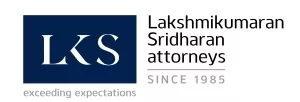- in United States
- within Technology, Government and Public Sector topic(s)
The CESTAT Bench at Chennai has held that air compressors for use in car air-conditioners are classifiable under Tariff Item 8414 80 11 of the Customs Tariff Act, 1975 wherein Heading 8414 covers 'Air or vacuum pumps, air or other gas compressors and fans; ventilating or recycling hoods incorporating a fan, whether or not fitted with filters'. The assessee was represented by Lakshmikumaran & Sridharan Attorneys here.
Revenue Department contention of classification under TI 8415 90 00 ibid., having a specific entry for 'parts of air-conditioning machines for use in motor vehicles', was thus rejected.
The Tribunal in Ford India Pvt. Ltd. v. Commissioner noted that the Department was not able to show that Heading 8414 was limited to goods of industrial use. It was also of the view that a specific part of an air conditioner can always be classified separately (hence out of Heading 8415) as provided in the Section / Chapter Notes. HSN Explanatory Notes to Section XVI of the Customs Tariff Act was relied by the Tribunal for the purpose.
Further, it may be noted that the Tribunal also held that the 'predominant use' or 'sole or principal' use test stated in Westinghouse Saxby Farmers decision of the Supreme Court was not applicable to the present case.
Assessee's argument that the Apex Court dealt with the interpretation of Section Notes to Section XVII of the Central Excise Tariff Act, whereas the present case was with respect to the interpretation of Section Notes to Section XVI of the Customs Tariff Act, wherein the Notes are not pari materia, was agreed by the Tribunal.
The content of this article is intended to provide a general guide to the subject matter. Specialist advice should be sought about your specific circumstances.


